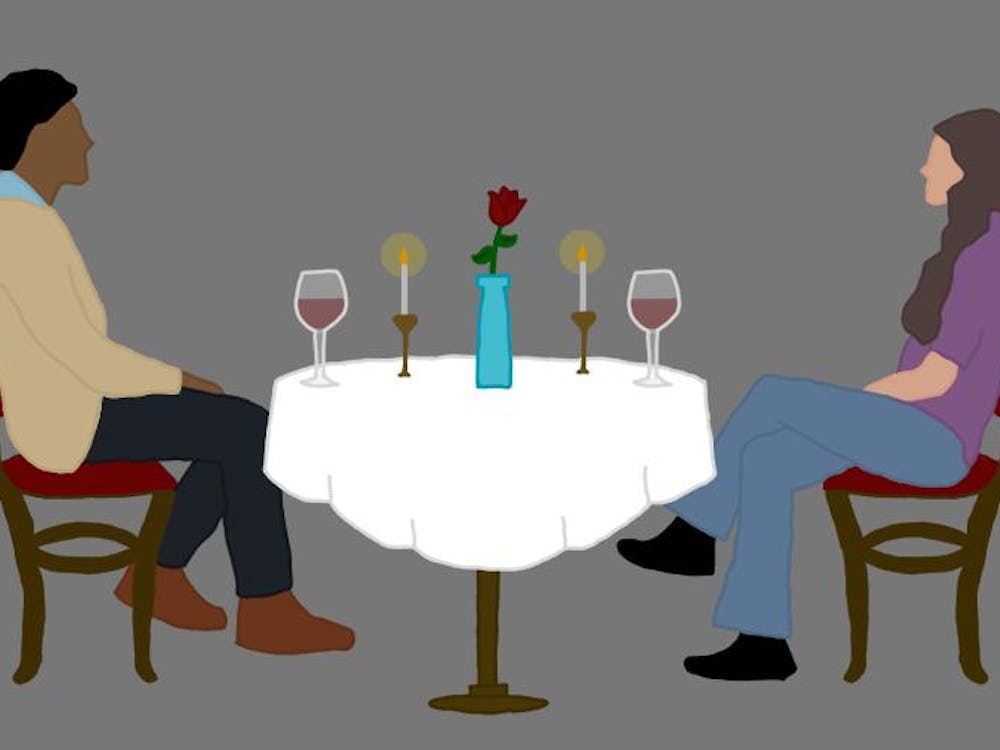Singing, dancing and drums greeted Semester at Sea at the wharf as we arrived in Walvis Bay, Namibia. There was a choir group of about 15 girls between the ages of 4 and 14 taking one of the biggest journeys of their lives to welcome American college students to their beloved land. I say one of the biggest journeys of their lives because they had never seen the ocean before, although they live less than a few hours away from the shore. Several SAS students remained on board to greet the girls and their leaders, give them a tour of the ship and share a sugar-filled breakfast. The group leaders were Catholic missionaries from Europe, the United States and Namibia. They told me their organization runs a center everyday from 3 to 7 p.m. for abused and neglected children to receive attention, clothing and food. The vast majority of the children have HIV positive and/or alcoholic parents. Whatever the case, there is no money at home for them. This made it all the sweeter to spend a morning spoiling them with attention and treats; little did I realize how selfless they are.
I helped each girl pile her plate with banana pancakes, whipped cream, chocolate sauce and syrup, fully expecting this to be a morning centered solely on them. Yet the girls did not understand this concept. One of the girls at my table began to clean her plate once she finished, painstakingly scraping the dried syrup off her plate with a napkin. “Honey, you don’t need to do that,” I gently told her.
“Yes I do,” she responded emphatically. “This is my job. I always clean the dishes and I must clean mine here.”
Moved by her dedication, I smiled and said, “Consider today your day off!”
Soon thereafter, two daughters of a SAS staff member wandered in and soon became glued to the hip with the two girls we were helping, who showered their newfound friends with praise and affection, much like the compassion that we were showering on them. In fact, those two little girls turned out to be the best diplomatic tool; the Namibian choir girls relaxed and opened up to us more after meeting children closer to their age. Perhaps the most moving part of the morning was when a waiter from the ship genially offered to sing the girls an old slave spiritual. The girls clapped while he sang in a thick accent of leaving his family in Africa to find a new home in Jamaica.
As much as we wanted to spoil the girls, that’s not what happened. Together, we coalesced. We showed them as much attention as they showed the equally young girls aboard our ship. This reminded me that Africa doesn’t need handouts. Its land and people need encouragement and support to move forward — but not pity.
The remainder of my stay in Namibia was filled with unexpected sights and experiences. Namibia was a German colony for many years and retains many German remnants. Biergartens, bakeries and Bavarian-style houses are scattered throughout the cities. Citizens speak the official language of English, but many speak German and Afrikaans as well. Unfortunately, Namibia suffered because of apartheid similar to South Africa because South Africa unofficially annexed the country during World War II. Though it has been independent from South Africa since 1990, remnants of apartheid are just as prevalent as the German heritage. Townships, which were formerly segregated slum areas, surround the outskirts of towns. Sadly, the end of apartheid did not signify social mobility and many people remained in their restricted slum areas. Now, thousands of people are crammed into a small area. Houses are two-room shacks made out of tin walls and flat roofs that accommodate entire families for up to three generations. Sometimes, shanty additions are built behind the cubicle homes. There are few paved areas to be found. The government recently has taken an active role in attempting to improve township life by paving roads and providing well-built houses for $40-a-month rent, but the issue is far from being resolved.
As I walked around Walvis Bay, township people eagerly waved, came over to greet us and posed for pictures. They seemed to feel no inferiority because of their clothes or homes or any other social division. Instead, we were all humans who shared the desire to learn about a new culture. We went to the township to hear about the social problems facing Namibia, but instead we met a proud populace which does not let social standing or misfortune affect its human dignity.
Katie’s column runs biweekly Tuesdays. She can be reached at k.rember@cavalierdaily.com.






